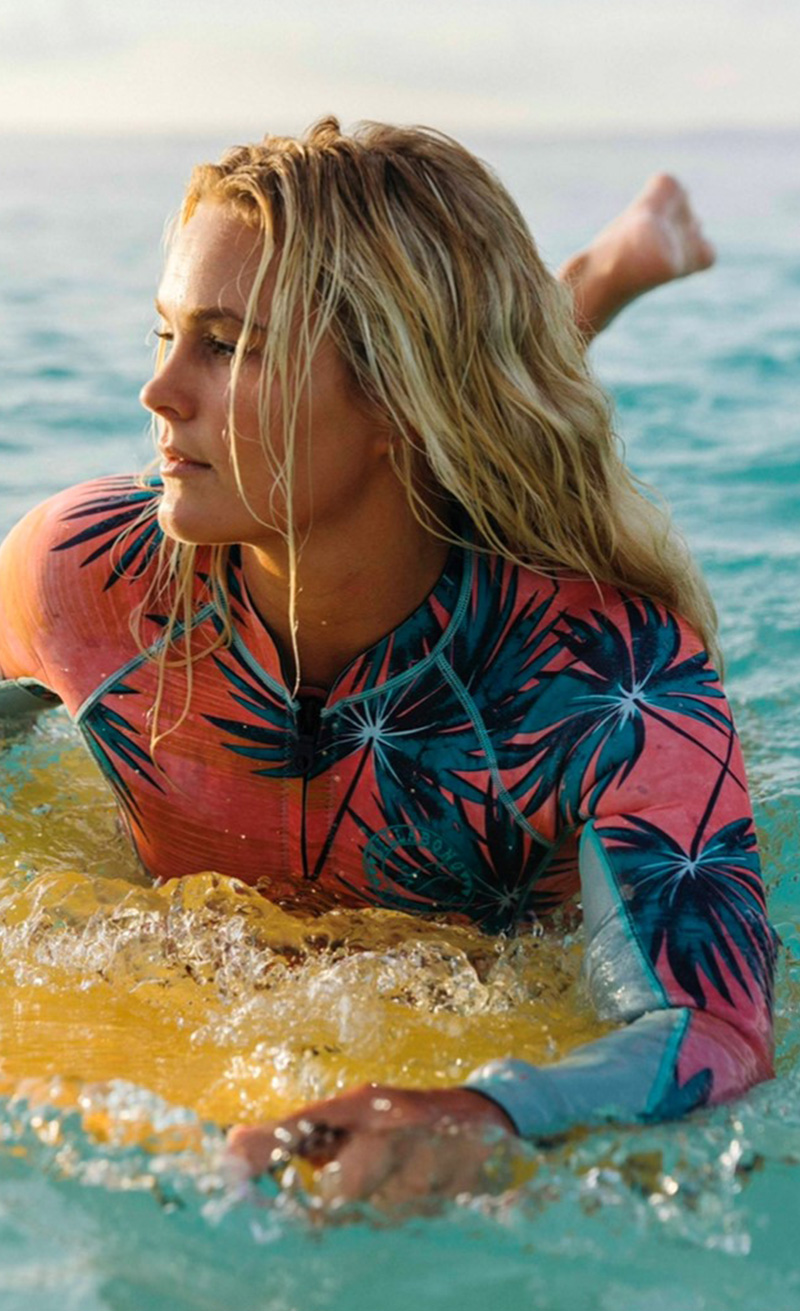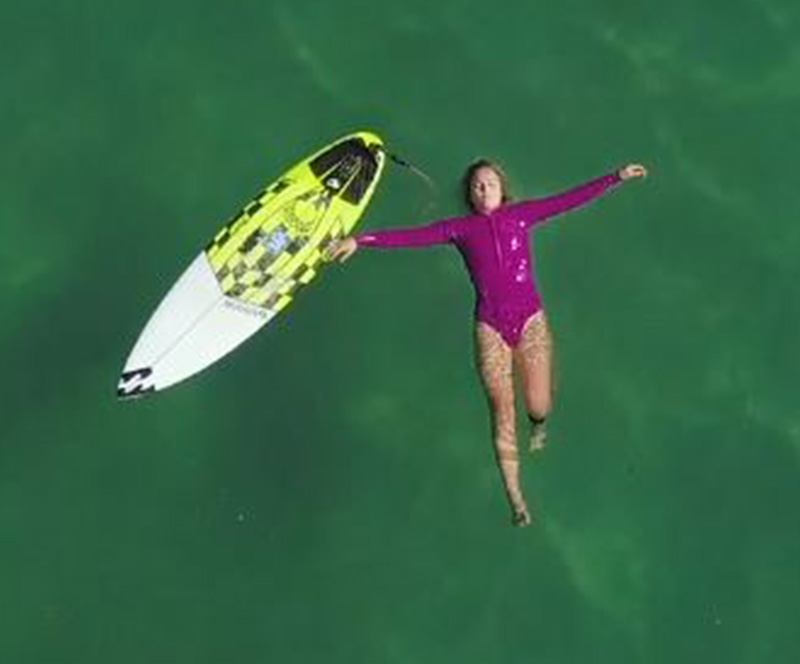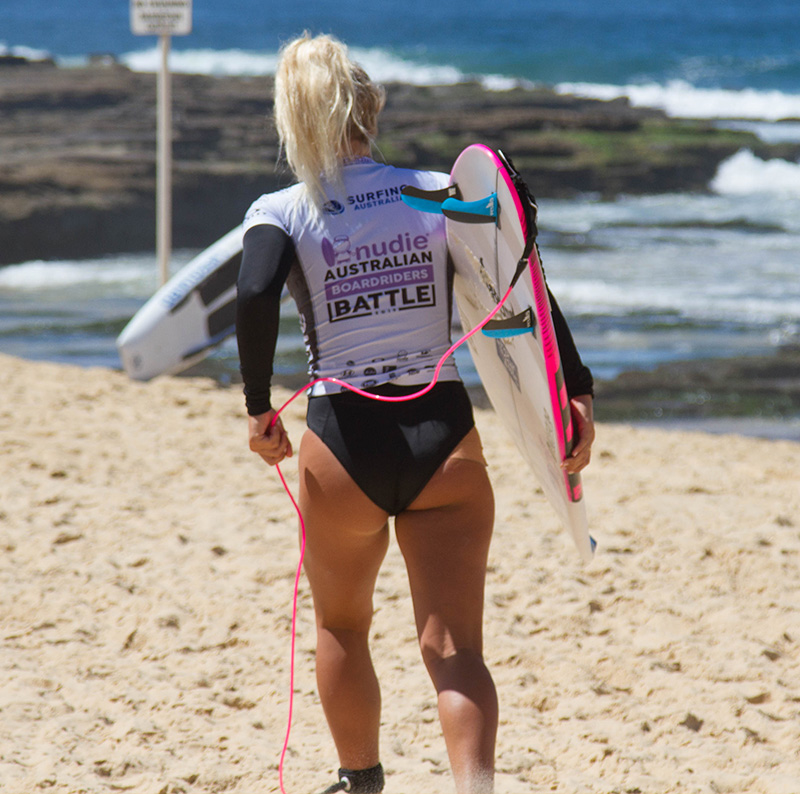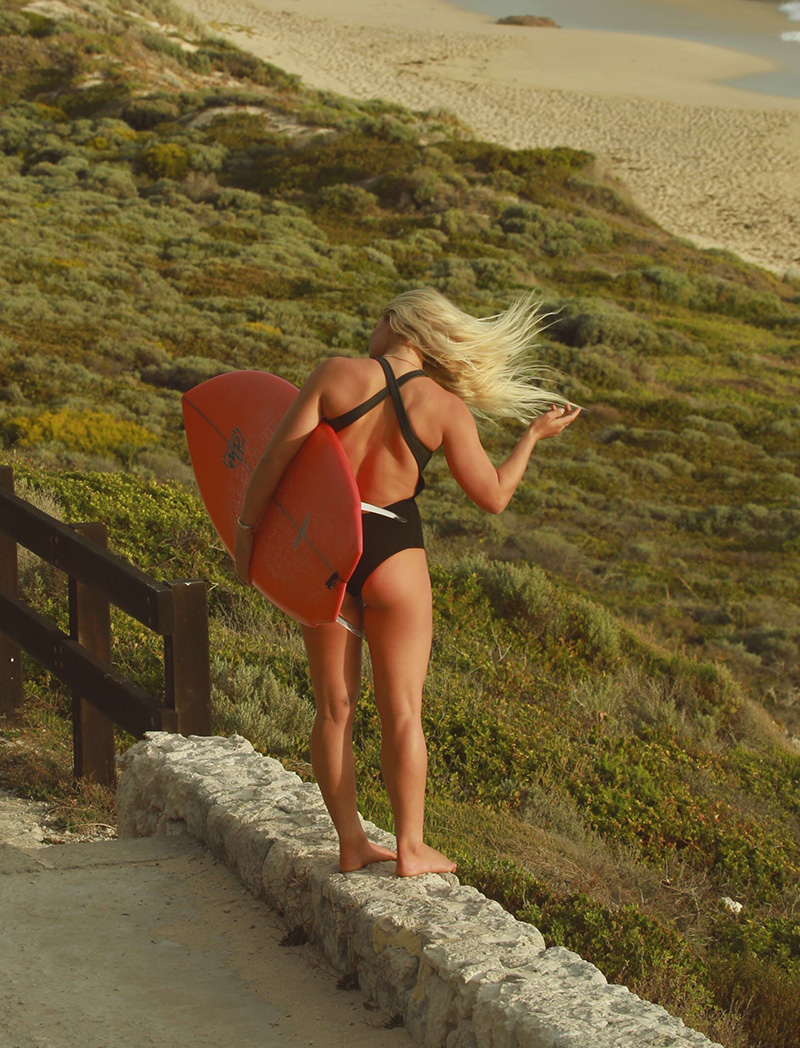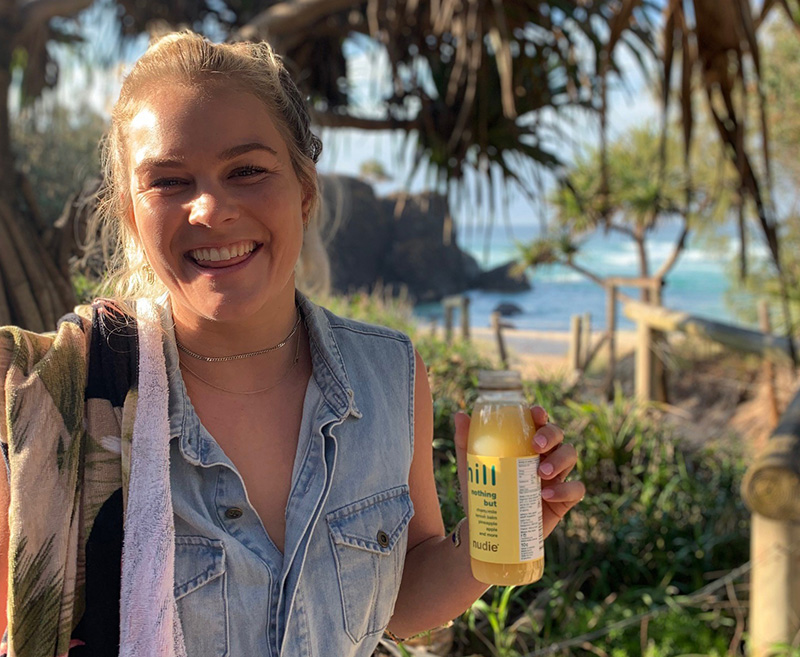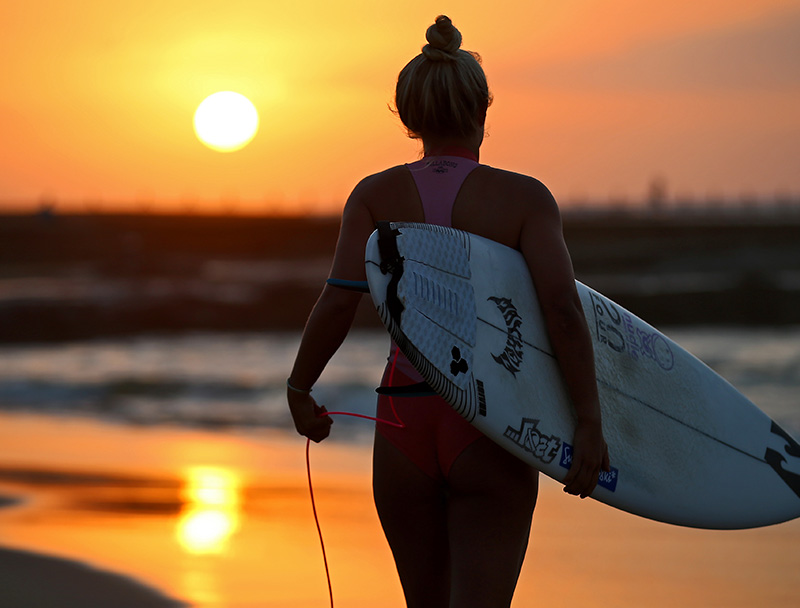When you’re about to compete in a global surf contest and the audience and cameras are watching, how do you mentally prepare for the task ahead?
“I have a routine which I do, and it’s something I do without thinking about it because I’ve done it that many times. This routine really helps get me into the zone. Sometimes I’ll do it even if I’m not competing – even if I’m just going into a free surf during the day. This routine involves analysing the surf before I go out. If it’s for a heat or if I’m competing, I’ll analyse the surf for at least an hour. Then right before I paddle out, I have an exercise routine that wakes up every single muscle in my body, and I also wear my headphones which allow me to listen to a meditation / visualisation that one of my coaches made for me. It talks through certain moments, and because I’ve listened to it so many times, my body knows ‘right, this is the sound I’m hearing and now is the time to get into the zone’. It basically triggers my body to get ready.”










